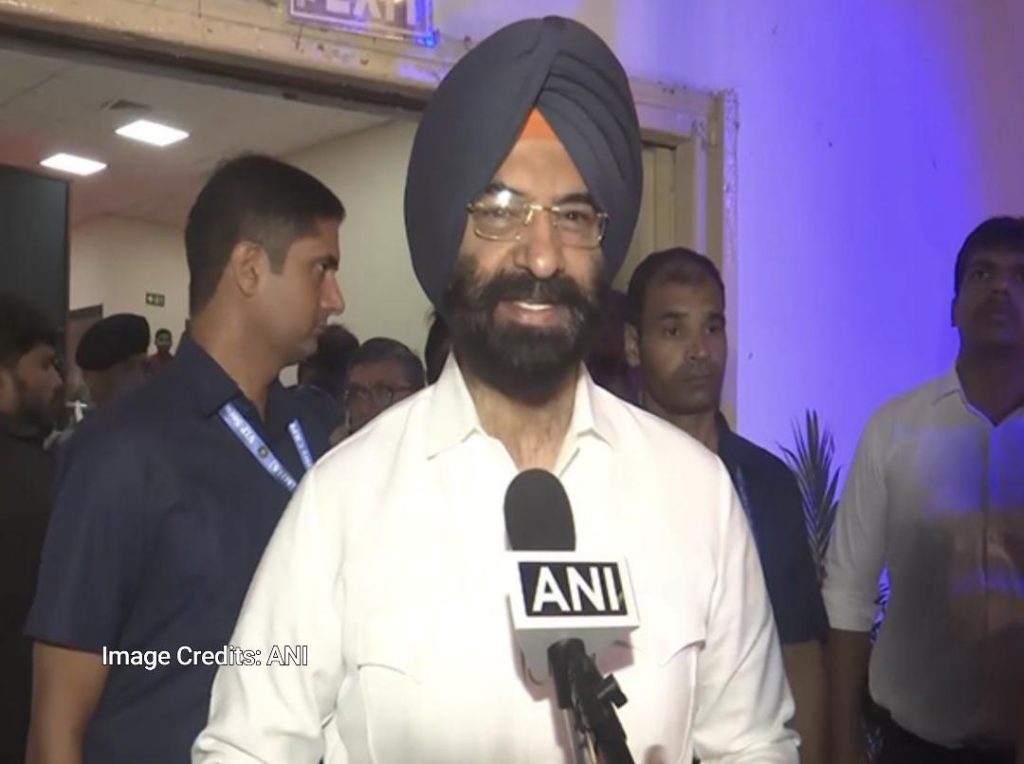
When AAP Ruled, Their Only Task Was to Cry & Complain: BJP’s Sirsa
The politics of Delhi has always been a topic of interest and debate, with the Aam Aadmi Party (AAP) and the Bharatiya Janata Party (BJP) being the two prominent parties vying for power. Recently, BJP leader Manjinder Singh Sirsa made some scathing remarks about the AAP, accusing them of persistently “crying and complaining” both in power and Opposition. His comments came after Delhi Chief Minister Rekha Gupta completed 100 days in office, and this blog post will delve into the context of his remarks and the implications for Indian politics.
For those who may not be aware, Manjinder Singh Sirsa is a well-known BJP leader from Delhi, and his comments about the AAP were made in response to the party’s performance during their previous tenure in power. The AAP, led by Arvind Kejriwal, was in power in Delhi from 2013 to 2017, and during that period, they implemented several policies aimed at improving the lives of Delhi’s residents. However, Sirsa’s remarks suggest that the BJP believes the AAP’s performance was lacking in many ways.
Sirsa’s comments were particularly stinging, as he accused the AAP of “seizing every chance to shed tears” and being more focused on complaining than on delivering results. This is a rather harsh criticism, as it implies that the AAP was more interested in making noise and garnering attention than in actually governing effectively. Sirsa’s remarks were likely an attempt to discredit the AAP and undermine their credibility in the eyes of the public.
But what exactly does Sirsa mean when he says that the AAP’s only task was to cry and complain? To understand this, it’s necessary to look at the AAP’s performance during their previous tenure in power. During that period, the AAP implemented several policies aimed at improving the lives of Delhi’s residents, including the implementation of a free Wi-Fi scheme, the introduction of a doorstep delivery of rations scheme, and the construction of new hospitals and schools.
However, the AAP’s performance was not without its criticisms. Many critics accused the party of being more focused on making grand announcements and creating hype around their policies rather than actually delivering results. The party’s leaders were also accused of being more interested in grandstanding and making political hay than in actually governing the city effectively.
Sirsa’s remarks likely reflect these criticisms, and his comments about the AAP’s tendency to “cry and complain” may be seen as a veiled attack on the party’s leadership style. By accusing the AAP of being more focused on making noise and garnering attention than on delivering results, Sirsa is implying that the party’s leadership is more interested in playing politics than in actually governing the city.
But what about the BJP’s own performance in power? The party has been in power in Delhi for several years, and during that time, they have implemented several policies aimed at improving the lives of Delhi’s residents. However, many critics have accused the party of being more focused on pursuing their own political agendas than on actually governing the city effectively.
For example, the BJP has been accused of using their time in power to pursue their own political agendas, such as the construction of the Bhagwat Bhawan building and the introduction of the “Delhi Metro Rail Corporation (DMRC) Bill”. These initiatives have been criticized for being more focused on serving the party’s own interests than on actually benefiting the people of Delhi.
Sirsa’s remarks about the AAP’s tendency to “cry and complain” may be seen as a veiled attack on the party’s leadership style, but they also reflect the BJP’s own criticisms of the AAP’s performance during their previous tenure in power. By accusing the AAP of being more focused on making noise and garnering attention than on delivering results, Sirsa is implying that the party’s leadership is more interested in playing politics than in actually governing the city.
In conclusion, Sirsa’s remarks about the AAP’s tendency to “cry and complain” reflect the BJP’s own criticisms of the party’s leadership style and their performance during their previous tenure in power. While Sirsa’s comments may be seen as a veiled attack on the AAP’s leadership, they also reflect the BJP’s own criticisms of the party’s performance and their tendency to focus more on making noise and garnering attention than on delivering results.
Ultimately, the politics of Delhi is a complex and multifaceted issue, and it is difficult to say whether Sirsa’s remarks are entirely fair or not. However, his comments do highlight the ongoing feud between the AAP and the BJP, and the challenges that both parties face in governing the city effectively.






